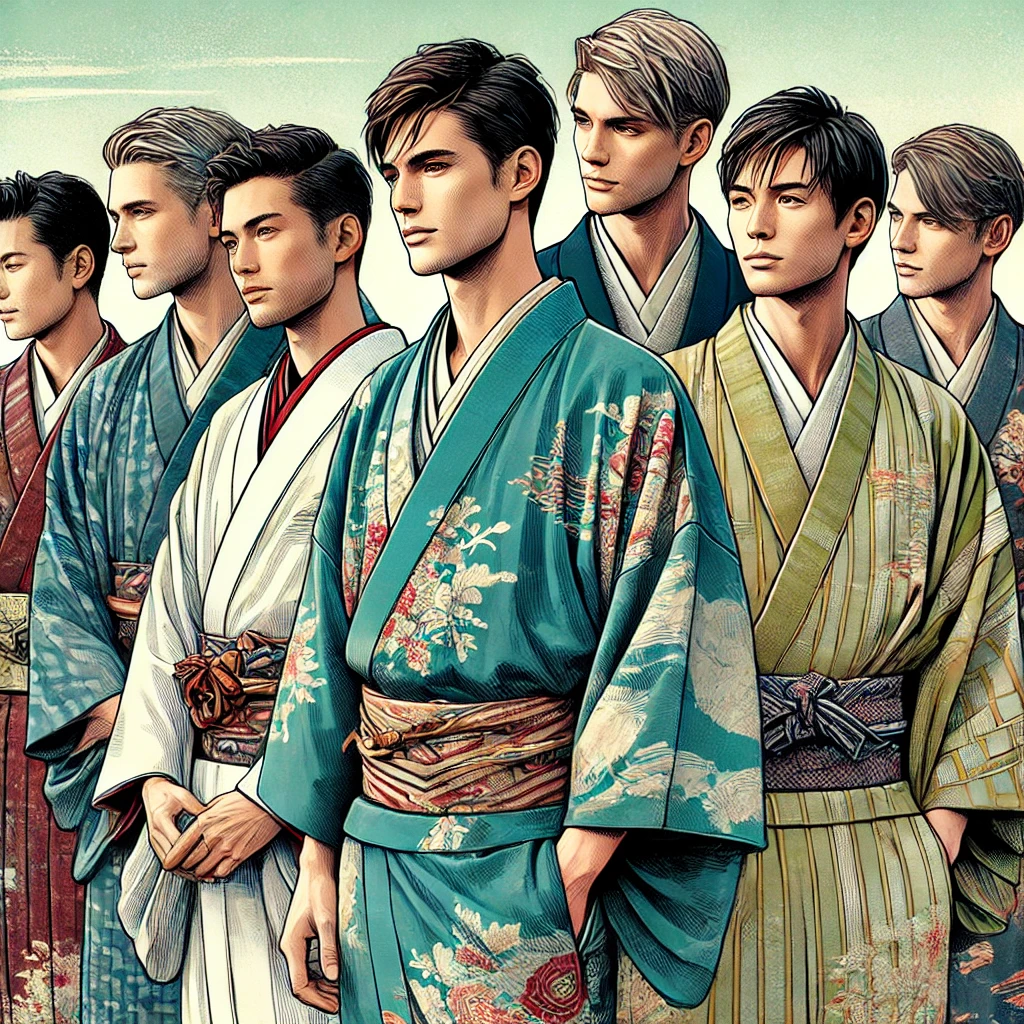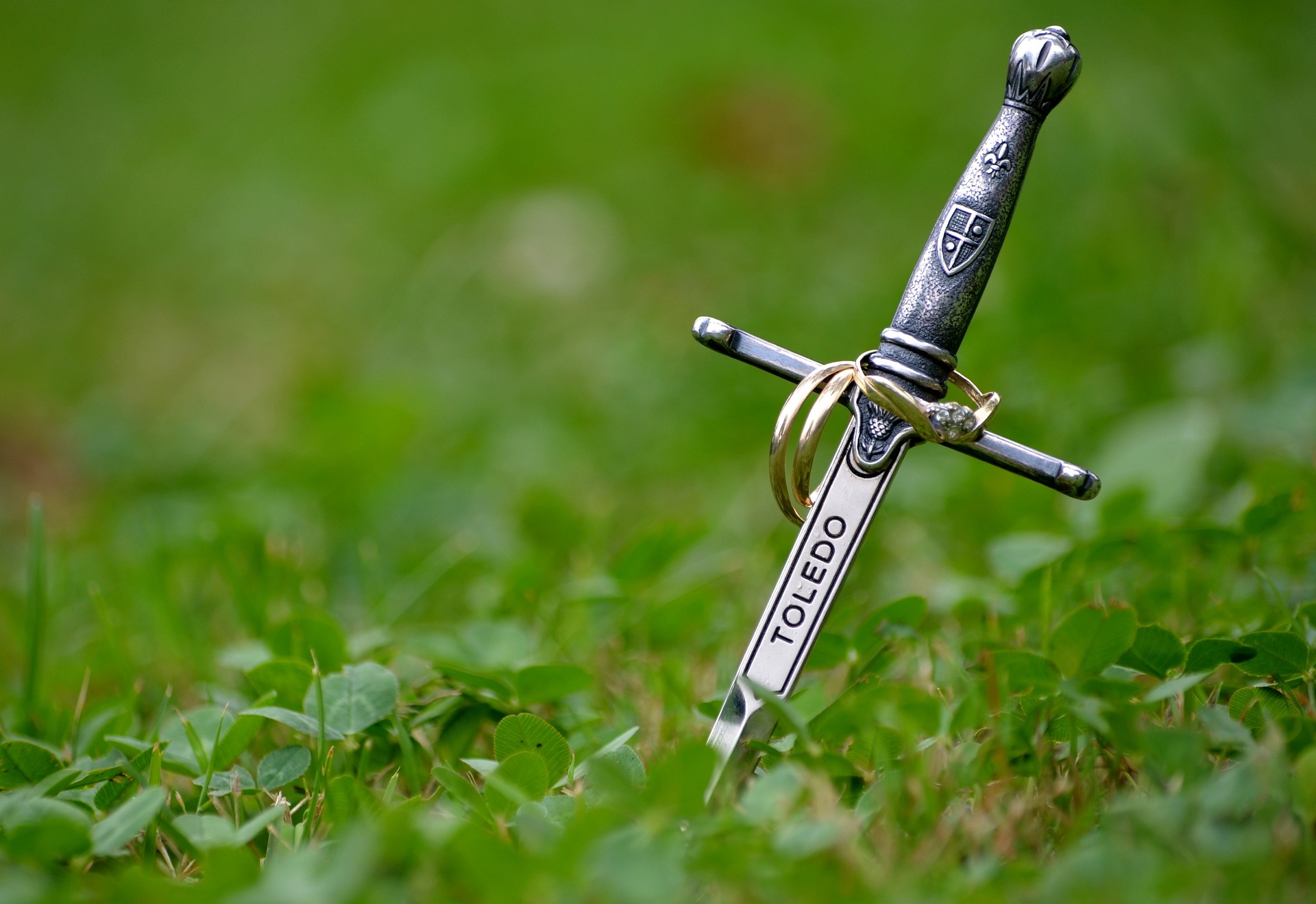Article Structure
- Introduction to 'Zoku Touken Ranbu: Hanamaru'
- Overview of the anime series and its premise.
- Introduction to the world of Touken Ranbu and the concept of anthropomorphized swords.
- Brief mention of the original series and the excitement surrounding the sequel.
- Character Development and New Additions
- Detailed descriptions of the returning characters and their roles.
- Introduction to new characters and how they fit into the story.
- Analysis of character growth and interactions that drive the plot forward.
- Plot Highlights and Key Episodes
- Overview of the main storyline and its progression from the first series.
- Discussion of key episodes that define the series.
- Exploration of significant moments and their impact on the characters and plot.
- Themes and Symbolism
- Discussion of the major themes such as loyalty, friendship, and the passage of time.
- Examination of how these themes are portrayed through the characters' experiences and the story.
- Analysis of the symbolism used in the series to enhance the storytelling.
- Reception and Cultural Impact
- Summary of the series' reception by audiences and critics.
- Discussion on the cultural impact of 'Zoku Touken Ranbu: Hanamaru' and its popularity.
- Speculation on future seasons or spin-offs based on the current storyline.
This structured approach will provide a comprehensive and engaging overview of "Zoku Touken Ranbu: Hanamaru," appealing to both fans of the series and newcomers interested in its unique narrative and charming characters.
Contents
- 1 Introduction to 'Zoku Touken Ranbu: Hanamaru'
- 2 Character Development and New Additions in 'Zoku Touken Ranbu: Hanamaru'
- 3 Plot Highlights and Key Episodes in 'Zoku Touken Ranbu: Hanamaru'
- 4 Themes and Symbolism in 'Zoku Touken Ranbu: Hanamaru'
- 5 Reception and Cultural Impact of 'Zoku Touken Ranbu: Hanamaru'
- 6 Supervisors
Introduction to 'Zoku Touken Ranbu: Hanamaru'

Alex: Hey Chris, have you heard about "Zoku Touken Ranbu: Hanamaru"?
Chris: Yes, Alex! It's the sequel to the popular anime "Touken Ranbu: Hanamaru," right? Can you tell me more about it?
Alex: Absolutely. "Zoku Touken Ranbu: Hanamaru" continues the charming adventures of the anthropomorphized swords from Japanese history. These sword boys, known as Touken Danshi, are brought to life by the Saniwa, a sage with the power to animate these historical blades to protect history from dark forces.
Chris: That sounds fascinating. What’s the basic premise of the series?
Alex: The series is set in the citadel where the Touken Danshi reside. They are tasked with preventing historical revisionists from altering the past. Each episode typically focuses on the daily lives and missions of different sword boys, blending light-hearted moments with action-packed scenes.
Chris: How does "Zoku Touken Ranbu: Hanamaru" differ from the original series?
Alex: While it maintains the same heartwarming and humorous tone, the sequel introduces new characters and further develops the existing ones. The sequel explores deeper themes of loyalty, friendship, and the passage of time, showing how the characters grow and evolve from their experiences.
Chris: That sounds intriguing. Can you explain the concept of anthropomorphized swords in this series?
Alex: Sure. In "Touken Ranbu," historical Japanese swords are personified as attractive young men, each with unique personalities reflecting their historical backgrounds. The concept is a creative blend of history and fantasy, where these characters must protect the timeline from being altered by malicious forces. This unique premise adds a layer of depth and cultural richness to the series.
Chris: It must be exciting for fans of the original series to see the sequel. How has the reception been?
Alex: Fans were thrilled about the announcement of "Zoku Touken Ranbu: Hanamaru." The series has been well-received for its continuation of the beloved characters' stories and its balance of humor, action, and heartfelt moments. The addition of new characters has also been a highlight, bringing fresh dynamics to the ensemble.
Chris: It’s great to hear that the sequel is living up to expectations. What can new viewers expect from this series?
Alex: New viewers can expect a delightful mix of historical fantasy, character-driven stories, and engaging action scenes. The series does a good job of making each episode enjoyable on its own, even if you’re not familiar with the original. It’s a blend of entertaining storytelling and cultural homage that appeals to a broad audience.
Chris: That sounds like a must-watch for anime fans.
Alex: Definitely. Whether you're a fan of historical settings, character-driven narratives, or simply enjoy well-crafted anime, "Zoku Touken Ranbu: Hanamaru" offers something special. Its unique premise and charming execution make it a standout series worth exploring.
This dialogue provides an engaging overview of "Zoku Touken Ranbu: Hanamaru," introducing the anime's premise, the world of Touken Ranbu, and the excitement surrounding the sequel, making it appealing and accessible to both new and returning viewers.
Character Development and New Additions in 'Zoku Touken Ranbu: Hanamaru'

Alex: Chris, let's talk about the character development and new additions in "Zoku Touken Ranbu: Hanamaru." Can you give me an overview of the returning characters and their roles?
Chris: Sure, Alex. In the sequel, we see the return of beloved characters like Yamatonokami Yasusada, who continues to be a reliable and earnest figure in the citadel. His dedication to protecting history remains a central part of his character. We also see Kashuu Kiyomitsu, who balances his confident exterior with moments of deep introspection about his place among the sword boys.
Alex: How about the other returning characters?
Chris: Characters like Mikazuki Munechika and Tsurumaru Kuninaga also return. Mikazuki remains the wise and serene elder, often providing guidance to the younger swords, while Tsurumaru’s playful and mischievous nature brings humor to the group. Each returning character retains their unique traits while showing subtle growth through their interactions and missions.
Alex: What about the new characters introduced in this season?
Chris: "Zoku Touken Ranbu: Hanamaru" introduces several new characters that add fresh dynamics to the story. For example, Hachisuka Kotetsu joins as a proud and somewhat aloof figure, bringing a new perspective to the group. His interactions with the other swords reveal layers of his character, showing both his pride and his vulnerabilities.
Alex: How do these new additions fit into the story?
Chris: The new characters integrate seamlessly into the existing narrative, each bringing their own backstories and motivations that enrich the plot. Their presence often challenges the established dynamics, leading to new alliances and rivalries. This keeps the story fresh and engaging, as the interactions between old and new characters drive the development forward.
Alex: Can you analyze how these interactions influence the plot and character growth?
Chris: Certainly. The interactions between characters are a key driver of the plot and character development in "Zoku Touken Ranbu: Hanamaru." For instance, the camaraderie and occasional conflicts between the sword boys highlight their individual growth and their collective mission. Yamatonokami and Kashuu’s evolving friendship underscores themes of loyalty and acceptance, while the introduction of Hachisuka Kotetsu brings new challenges that push characters out of their comfort zones.
Alex: It sounds like these dynamics add a lot of depth to the series.
Chris: They do, Alex. The character interactions not only advance the plot but also provide emotional depth. Each mission and daily activity in the citadel reveals new facets of the characters, making their development feel organic and engaging. The blend of returning favorites and new faces ensures that there's always something new to discover.
Alex: So, the character growth and interactions are central to the appeal of the series?
Chris: Absolutely. The nuanced character development and the rich interactions among the sword boys are what make "Zoku Touken Ranbu: Hanamaru" stand out. They create a vibrant, dynamic world that keeps viewers invested in the story and the characters' journeys.
This dialogue-based article provides detailed descriptions of the returning characters and their roles, introduces new characters and how they fit into the story, and analyzes how character growth and interactions drive the plot forward in "Zoku Touken Ranbu: Hanamaru."
Plot Highlights and Key Episodes in 'Zoku Touken Ranbu: Hanamaru'

Alex: Chris, let’s dive into the plot highlights and key episodes of "Zoku Touken Ranbu: Hanamaru." How does the main storyline progress from the first series?
Chris: Sure, Alex. The main storyline in "Zoku Touken Ranbu: Hanamaru" continues to follow the Touken Danshi as they protect history from the Time Retrograde Army. The series builds on the foundations laid in the first season, delving deeper into the lives and missions of these anthropomorphized swords. Each episode typically blends daily life in the citadel with their historical missions, creating a balance of slice-of-life and action.
Alex: Which episodes would you say define the series?
Chris: Several episodes stand out for their impact on the characters and overall narrative. For instance, Episode 1, "A Sunny Place," sets the stage by reintroducing the characters and establishing the tone of the sequel. It shows the camaraderie among the sword boys and hints at the challenges they will face. Another key episode is Episode 6, "The Ties That Bind," which focuses on the emotional bonds between the characters, emphasizing themes of loyalty and friendship.
Alex: What are some significant moments in these episodes?
Chris: In Episode 1, the return of familiar faces and the introduction of new characters create a sense of continuity and excitement. The interactions between the sword boys highlight their unique personalities and set up future conflicts and alliances. Episode 6, on the other hand, features a heartfelt moment where Yamatonokami Yasusada and Kashuu Kiyomitsu reflect on their shared past and the importance of their bond. This moment is pivotal as it deepens their relationship and underscores the series' themes.
Alex: How do these moments impact the characters and the plot?
Chris: These moments are crucial for character development and plot progression. The camaraderie and conflicts among the Touken Danshi drive the narrative forward, revealing their strengths and vulnerabilities. The emotional reflections in Episode 6, for example, lead to greater understanding and solidarity among the characters, enhancing their effectiveness as a team. Such interactions also provide insight into their backstories, adding depth to their personalities.
Alex: Are there any other episodes that particularly stand out?
Chris: Yes, Episode 10, "Festival Time," is another highlight. This episode combines light-hearted moments with significant character revelations. The festival setting allows the characters to relax and bond, but it also serves as a backdrop for personal reflections and growth. It’s a great example of how the series balances humor and emotion.
Alex: How does this balance affect the series overall?
Chris: The balance of light-hearted and serious moments keeps the series engaging and relatable. It ensures that the narrative remains dynamic, preventing it from becoming too predictable or monotonous. By blending daily life with historical missions, the series maintains a rhythm that appeals to a wide range of viewers.
Alex: It sounds like "Zoku Touken Ranbu: Hanamaru" successfully builds on the first series while introducing new elements.
Chris: Absolutely, Alex. The sequel enhances the original series by deepening character relationships and exploring new storylines. The key episodes and significant moments create a rich tapestry that keeps viewers invested in the characters' journeys and the overarching plot.
This dialogue-based article provides an overview of the main storyline and its progression from the first series, discusses key episodes that define "Zoku Touken Ranbu: Hanamaru," and explores significant moments and their impact on the characters and plot.
Themes and Symbolism in 'Zoku Touken Ranbu: Hanamaru'

Alex: Chris, "Zoku Touken Ranbu: Hanamaru" explores several profound themes. Let's discuss the major themes like loyalty, friendship, and the passage of time.
Chris: Absolutely, Alex. Loyalty is a central theme in "Zoku Touken Ranbu: Hanamaru." The Touken Danshi are bound by their duty to protect history, and their unwavering loyalty to their mission and to each other is portrayed throughout the series. This theme is evident in their willingness to face danger and make personal sacrifices to ensure the safety of the timeline.
Alex: How is friendship portrayed in the series?
Chris: Friendship is depicted through the close bonds formed between the sword boys. Despite their diverse backgrounds and personalities, the Touken Danshi share a deep camaraderie that strengthens as they face various challenges together. Episodes often highlight their playful interactions, mutual support, and the emotional growth that stems from their friendships. This theme is crucial in portraying the human side of these anthropomorphized swords.
Alex: What about the theme of the passage of time?
Chris: The passage of time is a poignant theme, reflecting both the historical context of the swords and their personal journeys. The series emphasizes the transient nature of their existence and the importance of cherishing each moment. Characters often reflect on their past lives and the eras they came from, adding a layer of depth to their interactions and decisions. This theme also ties into the overarching mission of preserving history.
Alex: How are these themes portrayed through the characters' experiences and the story?
Chris: The characters' experiences bring these themes to life. For example, Yamatonokami Yasusada’s loyalty to his comrades is highlighted in numerous episodes where he risks his safety for the greater good. The friendship between Yasusada and Kashuu Kiyomitsu evolves through shared challenges and personal growth, showcasing their bond. The passage of time is portrayed through the swords' reflections on their pasts and their roles in shaping history, adding a reflective quality to the narrative.
Alex: Can you analyze the symbolism used in the series to enhance the storytelling?
Chris: Certainly. Symbolism plays a significant role in "Zoku Touken Ranbu: Hanamaru." The swords themselves are symbols of loyalty and duty, embodying the spirits of the warriors who once wielded them. Their transformation into human-like figures symbolizes the enduring legacy of history and the continuous fight to preserve it. Additionally, the citadel where they reside represents a sanctuary, a place of both reflection and action, symbolizing the balance between past and present.
Alex: Are there specific visual symbols that stand out?
Chris: Yes, visual symbols like cherry blossoms and traditional Japanese motifs are frequently used. Cherry blossoms, which bloom briefly, symbolize the transient nature of life and beauty, reflecting the swords' own fleeting existence. Traditional motifs, such as samurai armor and historical settings, ground the series in its cultural and historical context, enhancing the authenticity and emotional impact of the story.
Alex: It sounds like these elements deeply enrich the series.
Chris: Absolutely, Alex. The use of themes and symbolism in "Zoku Touken Ranbu: Hanamaru" adds layers of meaning and emotional resonance. By exploring loyalty, friendship, and the passage of time through the characters' experiences and symbolic imagery, the series offers a profound and engaging narrative that captivates viewers.
This dialogue-based article provides an in-depth discussion of the major themes in "Zoku Touken Ranbu: Hanamaru," examining how loyalty, friendship, and the passage of time are portrayed through the characters' experiences and analyzing the symbolism used to enhance the storytelling.
Reception and Cultural Impact of 'Zoku Touken Ranbu: Hanamaru'

Alex: Chris, how has "Zoku Touken Ranbu: Hanamaru" been received by audiences and critics?
Chris: Alex, "Zoku Touken Ranbu: Hanamaru" has garnered a generally positive reception from both audiences and critics. Fans of the original series appreciate the continuation of the story and the deeper exploration of the characters. Critics have praised the animation quality, character development, and the blend of light-hearted moments with more serious themes. However, some have noted that the series' episodic nature might not appeal to everyone, especially those looking for a more linear plot.
Alex: How has the series impacted popular culture?
Chris: The cultural impact of "Zoku Touken Ranbu: Hanamaru" is significant, particularly within the anime community. The series has strengthened the Touken Ranbu franchise, which includes games, manga, and stage plays. It has also contributed to the popularity of the anthropomorphized historical figures genre, encouraging more anime and media to explore similar concepts. The show’s focus on historical swords brought to life has sparked interest in Japanese history and culture, leading to discussions and increased awareness among viewers.
Alex: That’s quite an impact. How popular is the series?
Chris: The series has a dedicated fanbase that spans both Japan and international audiences. Its popularity is reflected in the active fan communities, cosplay events, and fan art that celebrate the Touken Danshi. Merchandise sales, including figures, apparel, and accessories, have also been robust, further indicating the series' widespread appeal. The anime's success has helped solidify the Touken Ranbu franchise's place in contemporary pop culture.
Alex: What are the prospects for future seasons or spin-offs?
Chris: Given the ongoing popularity and rich source material, there is certainly potential for future seasons or spin-offs. The current storyline leaves plenty of room for further exploration, especially with new characters and historical events that can be introduced. Fans are eager for more content, and the positive reception of both the original series and the sequel suggests that additional seasons would be well-received.
Alex: Can you speculate on what future content might look like?
Chris: Future seasons could delve deeper into the personal stories of individual Touken Danshi, exploring their historical origins and the emotional journeys they undertake. Spin-offs might focus on specific characters or groups, providing more detailed backstories or new missions that challenge their abilities and relationships. There’s also the potential for crossover events with other media in the Touken Ranbu franchise, which could introduce new dimensions to the story.
Alex: It sounds like there’s a lot to look forward to.
Chris: Absolutely, Alex. The ongoing interest and strong fan support for "Zoku Touken Ranbu: Hanamaru" suggest that the franchise has a bright future. Whether through additional seasons, spin-offs, or related media, there’s a wealth of storytelling potential that can continue to captivate audiences.
Alex: So, the series has not only been well-received but also has a promising future.
Chris: Indeed. "Zoku Touken Ranbu: Hanamaru" has made a lasting impression on its audience and has significantly contributed to the cultural landscape of anime. Its success is a testament to the compelling characters, engaging storytelling, and the creative vision behind the series. Fans can look forward to more exciting developments in the Touken Ranbu universe.
This dialogue-based article provides a summary of the reception of "Zoku Touken Ranbu: Hanamaru" by audiences and critics, discusses its cultural impact and popularity, and speculates on potential future seasons or spin-offs based on the current storyline.
Supervisors
-

Moontsukki is a commentator full of anime love, and is like a "moonlight'" in the anime industry. She has been passionate about anime history, trends, and character analysis for over 20 years. In particular, his unique perspective, which delves deeply into the connections between anime and culture, is supported by many fans. Moontsukki's commentary will appeal to a wide range of readers, from anime novices to avid fans.
View all posts -

Fujiyama Monroe is a unique supervisor known as an "entertainment ambassador" in the anime world. Her commentary is characterized by a storytelling style that mixes the deep themes of anime works with humor. She has a "wide field of view like Mt. Fuji" and "a gorgeousness like Monroe," and explains the background of the work and the feelings of the characters in an easy-to-understand manner. It has a charm that makes readers want to know more.
View all posts -

Otamagena, as the name suggests, is an anime critic who delivers surprise and fun. He is a master at unraveling anime works from a "surprising perspective" and discovering new charms. She provides an easy-to-understand introduction to the behind-the-scenes settings and behind-the-scenes stories behind the anime's production, and provides tips to help you enjoy the characters and story more deeply. Her commentary with her unique sensitivity is sure to give anime fans a new perspective.
View all posts -

HoriHori Celebrity is a "digger" of anime and pop culture. We delve deeply into the worldview and social messages depicted in anime, and approach a wide range of people with our expert knowledge and light speaking style. Her commentary is characterized by a cross-section of domestic and international works, adding a global perspective. With content that can be enjoyed by both anime beginners and experts, he is an expert at suggesting to readers the "anime they want to watch next."
View all posts
